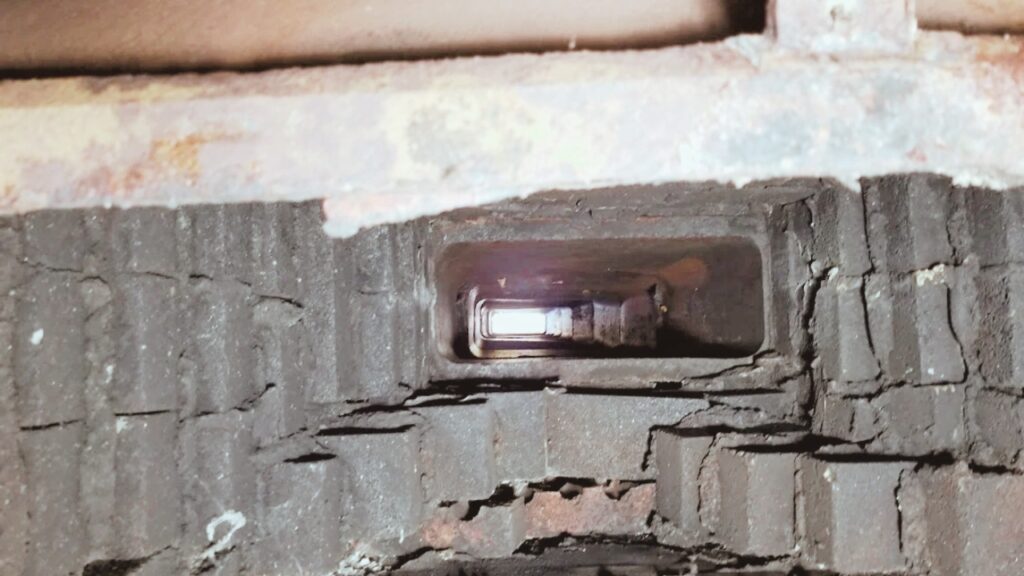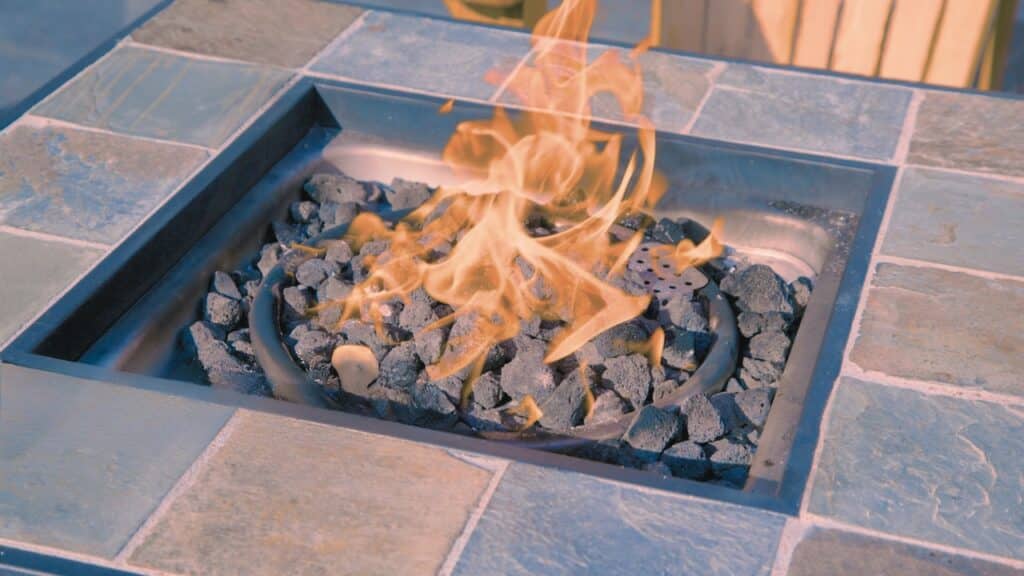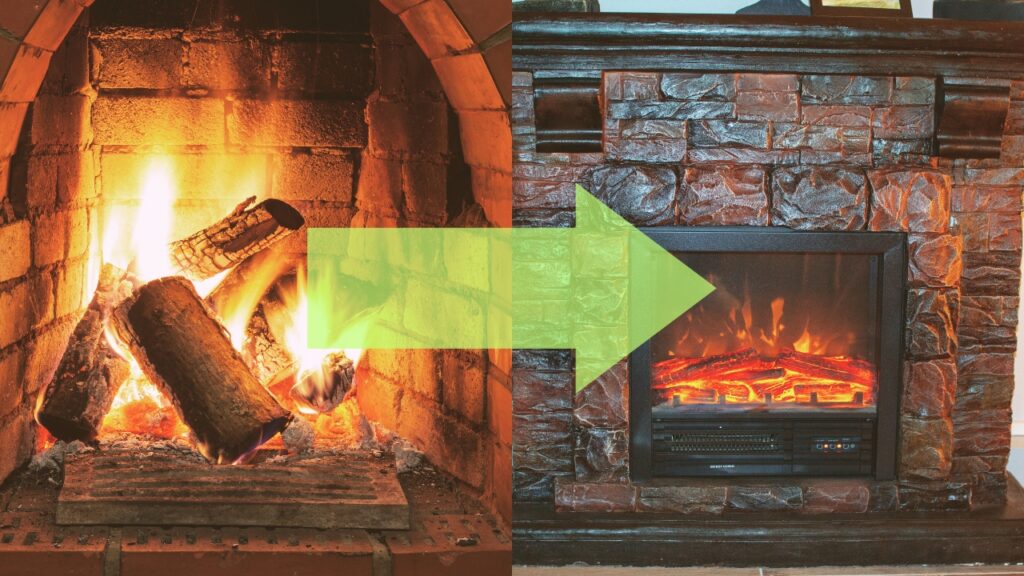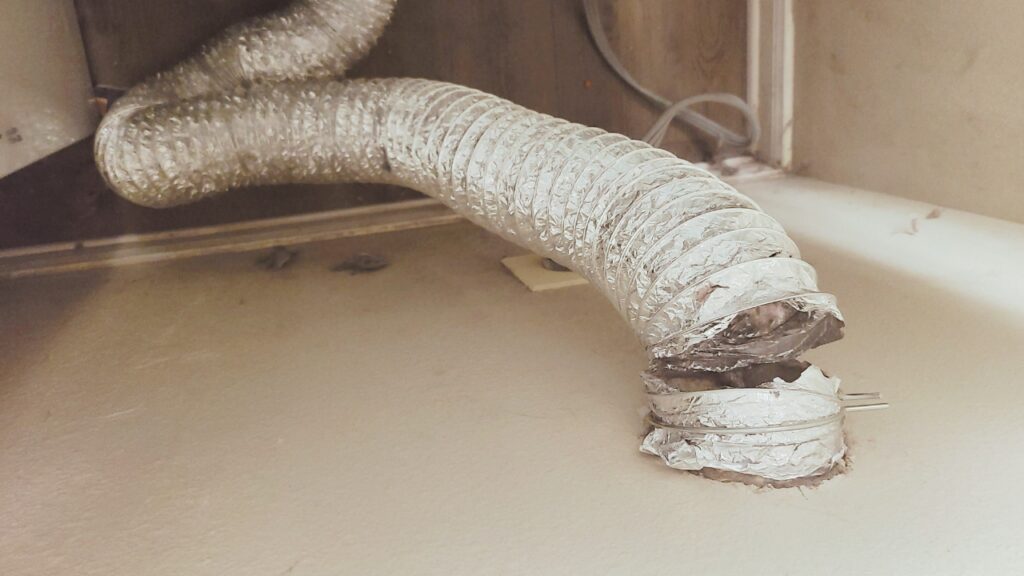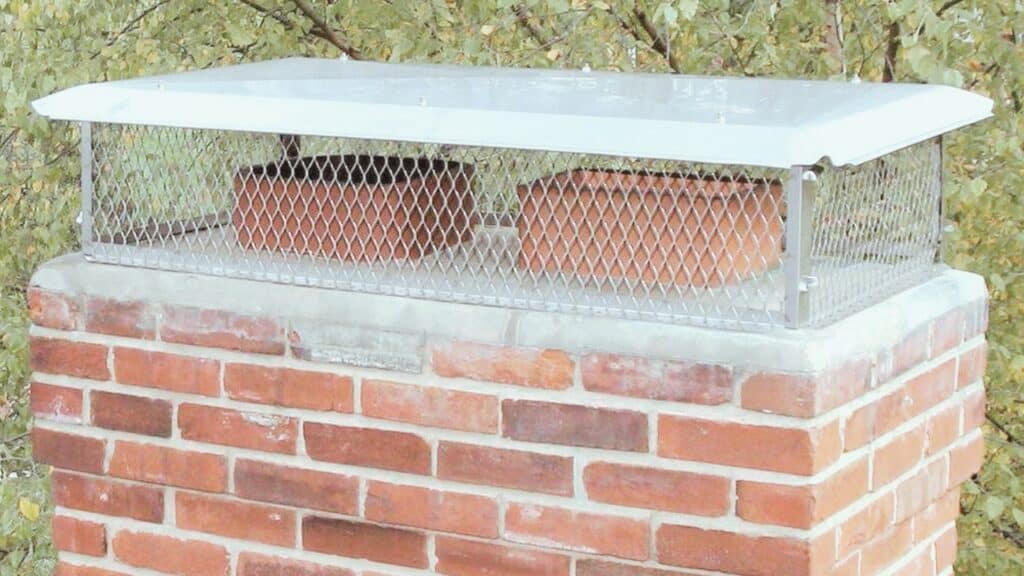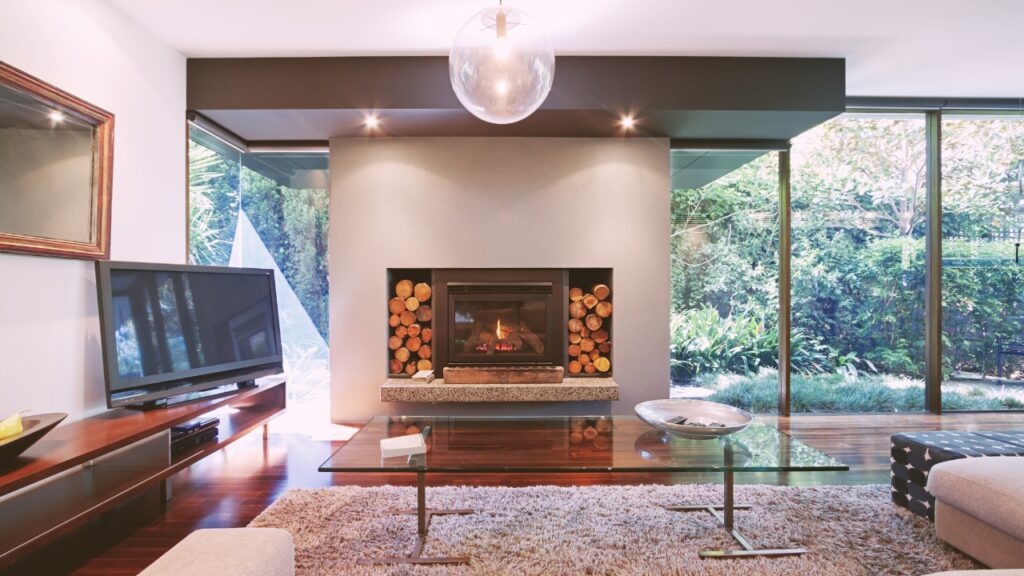Birds in chimney? It’s not as uncommon as you might think — birds are attracted to the warmth of a fireplace, and if there’s an opening into your flue, they’ll often find their way in.
As the nesting season approaches, you might find yourself with a few feathered friends taking residence in your chimney. This is because birds tend to look for food and shelter in places already familiar to them.
Birds in a chimney can cause many problems — from making a mess to starting fires. It would be best to clearly understand the signs and risks involved with animals in chimneys before deciding how to deal with them.
Reasons Why Birds End Up in Chimneys
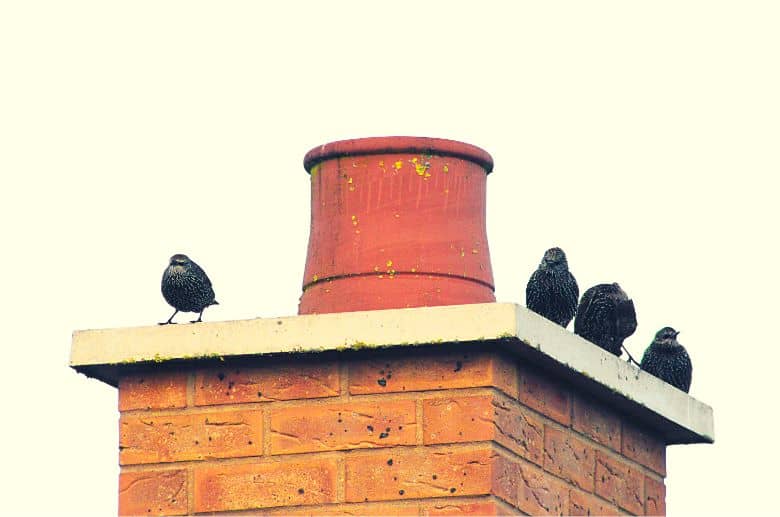
Several reasons contribute to having a bird in your fireplace.
1. Looking for a Cozy Place to Nest
Birds are creatures of habit. Once they find a comfortable place to nest, they often return to the same spot every year. If your chimney has been home to birds in the past, it’s wise to swift-proof your chimney to prevent future visits.
2. Missing or Damaged Chimney Cap
If your chimney doesn’t have a cap or the existing cap is damaged, birds can easily fly down the chimney and end up in your fireplace. A properly-fitted chimney cap can help keep birds out.
3. Top Sealing Damper Needs a Repair or Replacement
Another way birds can enter your chimney is if the top sealing chimney damper isn’t working correctly. If there’s a gap in the seal, birds can fly into the chimney and become stuck.
How Do You Tell If There Are Birds in the Chimney?
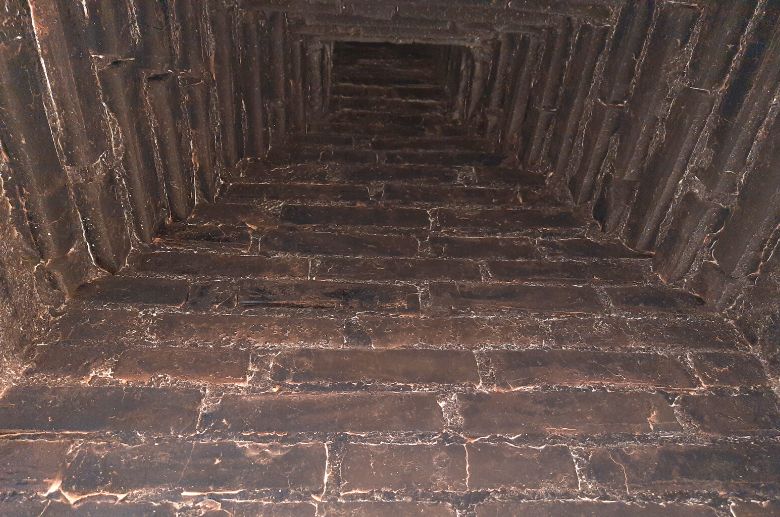
What are some of the signs that birds might be in your chimney?
- Weird sounds: These birds are likely roosting birds like sparrows, chimney swifts, swallows, and starlings. You might hear them chirping, cooing, or shuffling around.
- Droppings: Take a look at the ground below your fireplace or wood stove. If you see bird droppings, that’s a good sign birds are getting in and out of your chimney.
- Nests: Birds are roosting there if you can see a nest inside your chimney. Nests are usually made of sticks, leaves, grass, and feathers.
- Birds flying out: You might see birds flying out of your chimney when you light a fire. This is a good sign that birds use your chimney as an exit and entry point.
- Unpleasant Smell: If you smell something foul coming from your fireplace, it could be the birds. Their droppings and feathers can create an unpleasant odor. It could also mean a bird has died in your chimney.
The Dangers of Having Birds in the Chimney
Having birds in your chimney puts you in a difficult situation. For instance, the Federal Migratory Bird Treaty Act protects migratory birds like chimney swifts. Even if they are causing serious problems for your home, getting them out might require the help of a professional who knows how to handle them without inflicting any injury.
Birds can easily contribute to the following problems:
1. Bird Droppings Diseases, Bacterial and Fungal Infections
All birds carry bacteria and disease in their droppings. When these droppings accumulate in your chimney, it creates an environment where harmful bacteria and fungi can grow. This can lead to serious respiratory problems for you and your family.
2. Pests
Birds in your chimney can also attract other pests, such as rodents and snakes. These pests can carry their own diseases and cause further damage to your home.
3. Chimney Blockage
Birds can nest in your chimney, blocking the flue and preventing proper ventilation. This can cause dangerous gasses to build up in your home.
Some of these gasses include carbon monoxide, which can cause health problems or even fatal disasters for you and your family.
4. Fire Hazard
Birds in your chimney are a fire hazard. Their nesting materials can easily ignite, causing a devastating fire that could destroy your home.
If you suspect that you have birds in your chimney, it is crucial to take action immediately.
——
Do You Need to Hire Chimney & Fireplace Expert?
Get free quotes from qualified experts near you. No commitment required!
——
Tips to Getting Rid of Birds in a Chimney
When birds decide to make a home in your chimney, it can create quite a nuisance. And while there are many ways to get rid of birds in your chimney, not all of them are effective.
Here are some recommended tips for safely and effectively removing birds from your chimney:
1. Scare the Birds: One way to get birds out of your chimney is to scare them off. You can do this in many ways, such as:
- Hanging shiny objects from the top of the chimney
- Attaching Mylar streamers or ribbons to the outside of the chimney
- Using flashlights or spotlights to shine light into the vent at night
- Playing recordings of birds in distress or the sounds of predators
- Setting off smokeless firecrackers near the vent to scare the birds away
2. Set Traps: Another way to get birds out of your chimney is to set up traps. The most common trap used for birds is the baited cage trap.
To set up a baited cage trap, you will need:
- A large wire cage
- Bait such as birdseed, mealworms, or berries
- A perch for the bird to sit on
Place the cage over the chimney’s opening and secure it to set up the trap. Then, bait the trap with birdseed, mealworms, or berries. Once the bird is inside the cage, it will be unable to escape.
Keep in mind that some birds in your chimney might be a protected species. But regardless of that status, handling a bird very carefully is the humane thing to do. Never kill the birds — make a point of releasing them into the wild so they can find a nesting material other than inside your chimney.
3. Call Animal Control: If you’ve tried the above methods and nothing has worked, your next step should be to call animal control. They will be able to help you remove the birds from your chimney safely and legally.
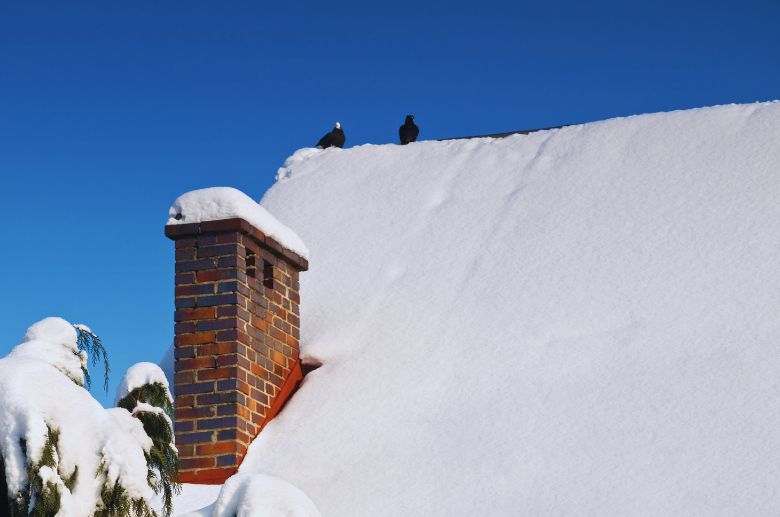
What We Don’t Recommend
Here are tips that we don’t recommend for removing birds from your chimney:
1. Removing Bird Nests: Because federal law protects native birds, it is illegal to remove birds’ nests from your chimney without a permit. Handling the nest might also mean an open window to catch diseases birds might be carrying.
2. Smoking Out Birds: This is bad in multiple ways. It is inhumane, and the attempt could cause a fire.
3. Lighting a Fire: If you know you have birds in the chimney, lighting a fire in the fireplace can be very dangerous. It’s inhumane. And it’s also illegal in some states.
——
Do You Need to Hire Chimney & Fireplace Expert?
Get free quotes from qualified experts near you. No commitment required!
——
How To Prevent Birds In Chimneys
The best way to get rid of birds in your chimney is to prevent them from getting inside in the first place. To do this, you can:
1. Use a Chimney Cap
Having a chimney cap installed is the best way to keep birds out of your chimney. A chimney cap covers the opening of your vent and has a wire mesh that prevents birds from being able to get through.
2. Seal All Gaps and Cracks
Birds can enter your home through the smallest of gaps and cracks. Inspect your chimney for cracks or crevices and seal them with caulk or mortar.
3. Keep Your Chimney Clean
A dirty chimney is an inviting place for birds to build a nest. Be sure to have your chimney inspected and cleaned regularly to prevent birds from taking residence.
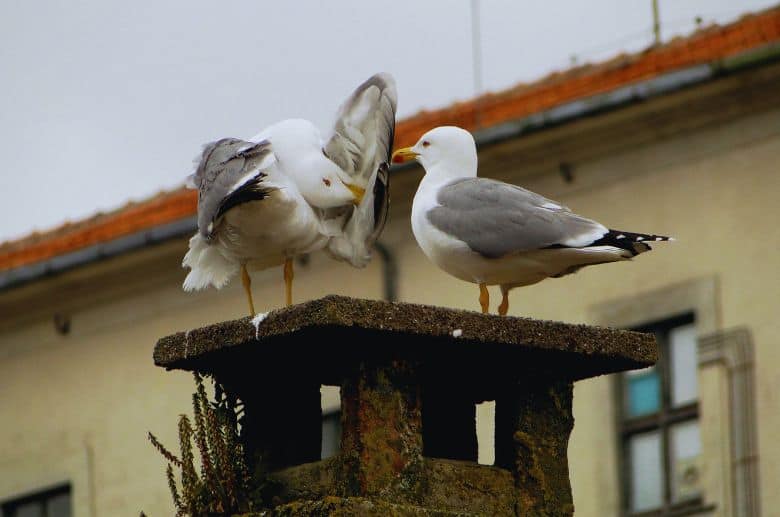
Conclusion
It’s common for birds, especially chimney swifts, to roost in chimneys. If you have birds in your chimney, act fast and get them out before they cause any damage or start a fire.
Homeowners can use various methods to remove birds from their chimneys or call a professional for a chimney sweep. You can also decrease the chances of any animal roosting there with chimney caps.

